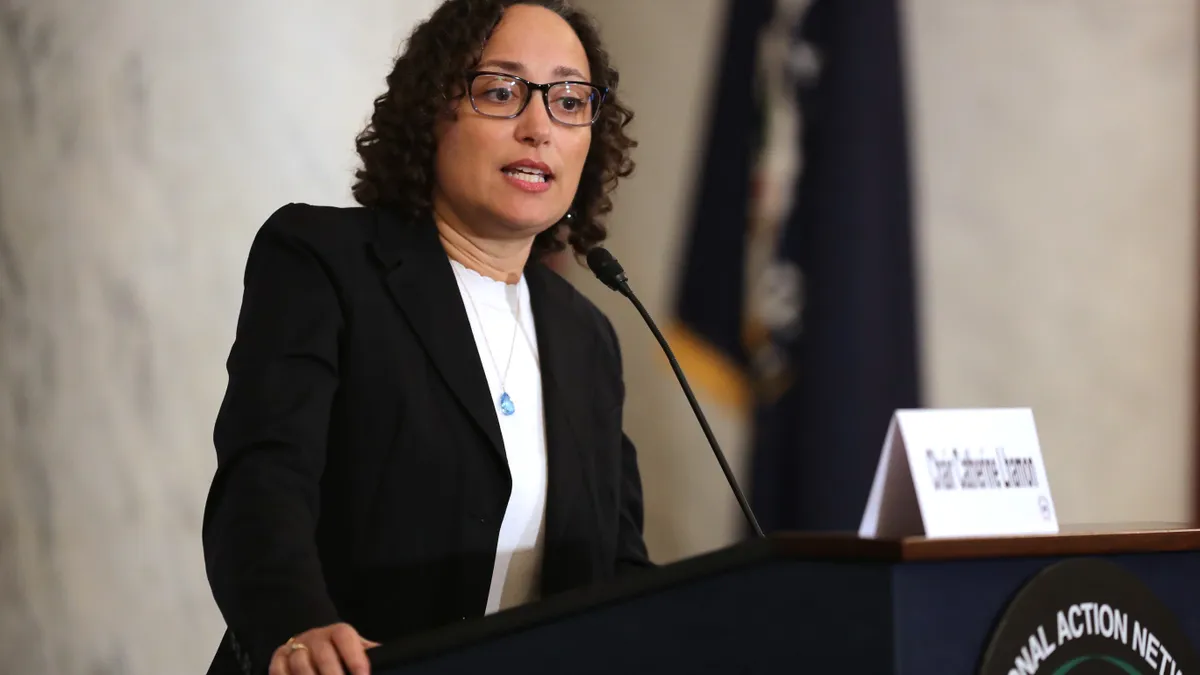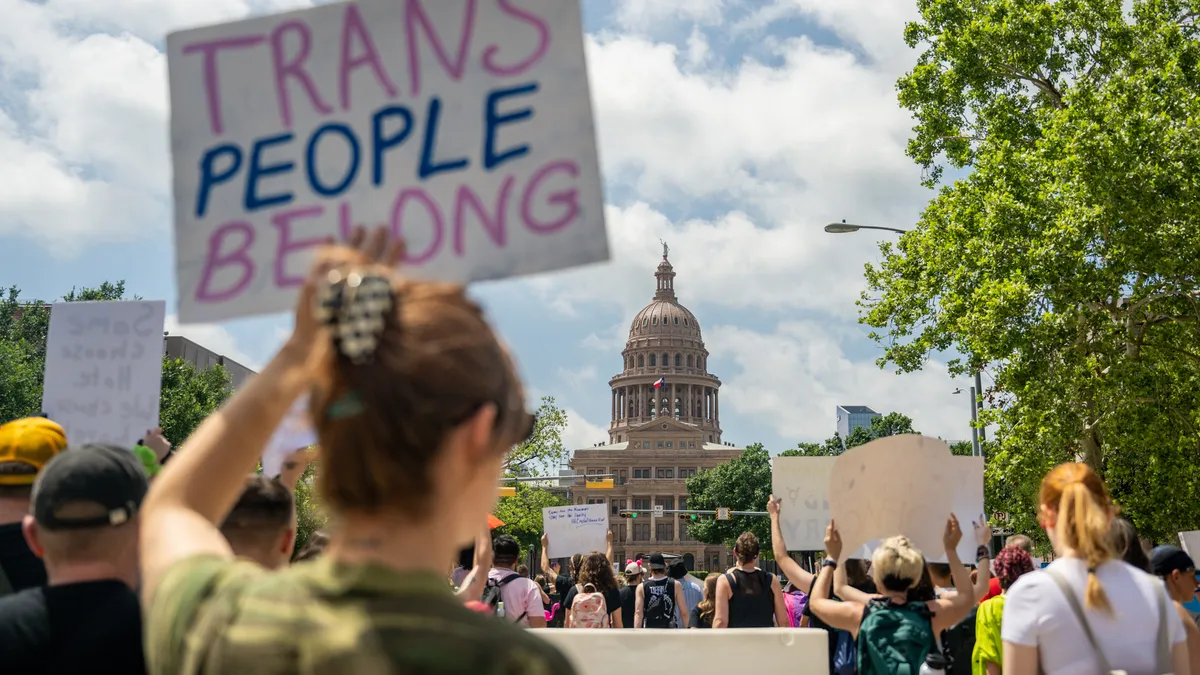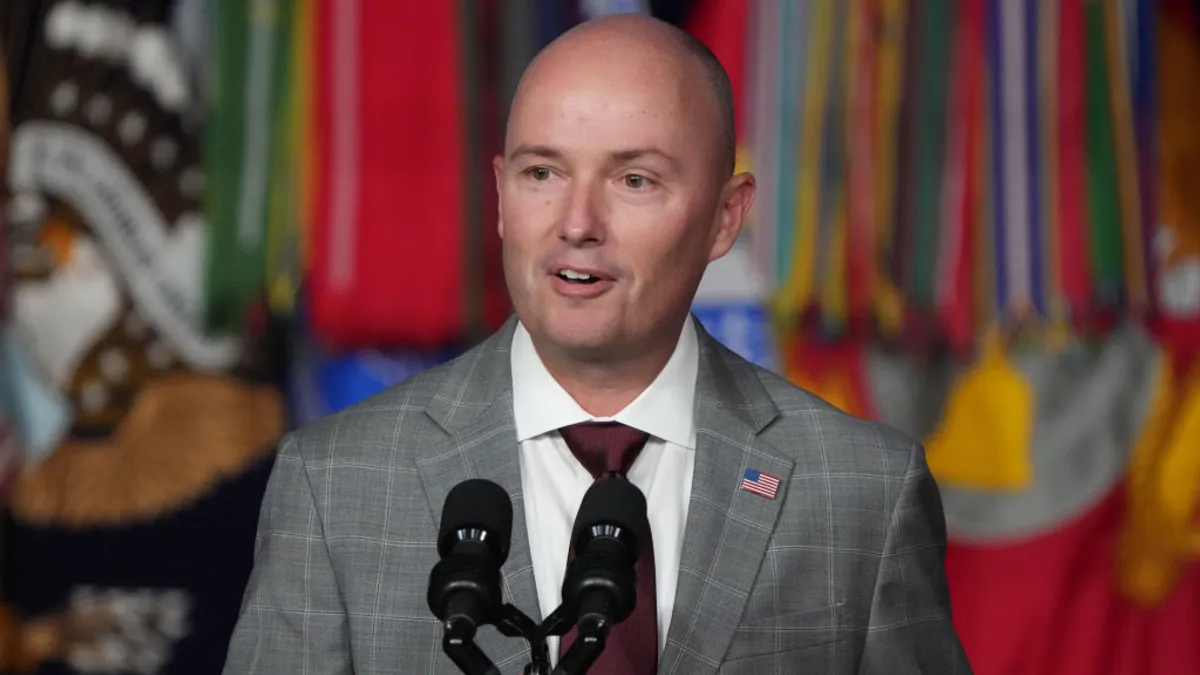The Office for Civil Rights received yet another record-breaking number of complaints in fiscal year 2023, and the high volume shows no signs of slowing down this year.
In 2023, the U.S. Department of Education's civil rights enforcement arm received 19,201 complaints, representing a 2% increase from the year before, according to numbers OCR shared with K-12 Dive. The number of complaints OCR received in 2023 is more than double the 8,934 received in fiscal year 2021.
Some 12,709 of last year's cases were related to K-12. That represents at least a 144% increase since 2021.
And now it appears the overall record highs from the last two fiscal years may be eclipsed yet again. Already in 2024, OCR has seen a 26% increase in complaints compared to this time last year, according to Catherine Lhamon, assistant secretary for civil rights.
OCR complaints up 2% from last year
"So we are already well exceeding the all-time high in complaint volume that we had last year," she told K-12 Dive. Lhamon said civil rights complaints have nearly tripled since 2009, while OCR investigative staff levels have decreased.
Lhamon said her staff is now carrying, on average, more than 40 cases per person, continuing last year's trend of what Lhamon had called an "untenable caseload."
"It's very challenging to meet the moment for the volume of civil rights concern that is coming into our office right now," she said.
K-12 complaints have more than doubled since 2021
Current affairs compound onto pandemic impact
OCR noted to K-12 Dive last year that in fiscal year 2022, a number of civil rights complaints were related to the pandemic. They included issues such as mask-wearing and availability of remote learning services for students, including those with disabilities.
While the pandemic's impact on the increasing civil rights complaints continued through fiscal years 2023 and 2024, other drivers have included the U.S. Supreme Court's controversial July decision striking down race-conscious college admissions and an escalation in Title VI complaints since the Oct. 7 Hamas attack on Israel and resulting Israel-Hamas war.
Between the start of fiscal year 2024 on Oct. 1, 2023, and Feb. 15, 2024, OCR received 219 complaints involving Title VI-shared ancestry. During the same window last year, the agency received only 15.
The increase in complaints comes in the wake of rising reports of antisemitic and Islamophobic incidents in schools since the war began. OCR in early November warned districts it would crack down on implementing the civil rights law if they failed to protect Israeli, Palestinian, Jewish and Muslim students from discrimination.
Since October, the agency has opened nearly 70 investigations into school districts and universities, including big systems like New York City Public Schools in late November and Chicago Public Schools just this week.
OCR has also seen a steady increase in race and sexual harassment complaints.
"I think that the attention to school issues and to the civil rights concerns that we ask kids to navigate in school is also causing an increase in cases coming to us," said Lhamon.
With final Title IX regulations on the horizon, it's possible sex discrimination complaints will increase even further. As proposed, the federal regulations would for the first time protect LGBTQ+ students and establish criteria for participation of transgender students on athletic teams.
"It's hard to know for sure," said Lhamon. "Often when we speak to a particular issue, it can cause an increase."
OCR continues new resolution procedures
To help address OCR's increasing workload and sparsely stretched staff, the office in 2022 changed how it approaches the complaint and resolution process by routinely offering complainants an option for mediation when filing a case as an alternative to an investigation that can take months and even years.
Prior to the change, OCR offered mediation only on a case-by-case basis.
Last fiscal year marked the first full fiscal year that OCR used the new mediation tool, and Lhamon said it has proven "very effective." In fiscal 2023, OCR resolved more than 550 cases through mediation, an increase from the year prior.
"So that was very significant as a docket management tool for us, and also as a path to secure relief for communities based on concerns that would otherwise come to us for investigation resolution," Lhamon said.
OCR could close more cases with additional funds
The high number of complaints for fiscal year 2023 will be shared as part of OCR's forthcoming annual report. Last year, the report came out in May.
In the interim, more than 90 civil rights groups last week called on President Joe Biden and Congress to double OCR's funding, citing the spread of classroom censorship laws and anti-LGBTQ+ policies.
As of Feb. 20, OCR has 10,185 pending cases against K-12 and higher education institutions. Some of those cases date back over a decade.
Prominent civil rights groups including the American Civil Liberties Union and a number of from the education world signed onto the letter to Biden last week saying that "the office is still faced with a civil rights crisis."
"For years, insufficient funding has been presented to justify either protracted or shallow responses to complaints," they said.
Lhamon called the complaints "very complex to resolve" and said the monitoring of school systems that follows resolution agreements can often take years. Last year, for example, OCR stopped monitoring one Pennsylvania school district after a decade, she said.
"I regret that it takes that long to make sure that the law can be fully satisfied," said Lhamon. "I am so pleased about what we're doing now, to move the cases as quickly as we can."
More funding would mean more staff. Biden's FY 2024 funding proposal called for a 27% increase in funding for OCR, which Lhamon said would allow the agency to hire 150 additional staff. Biden has yet to release a FY 2025 proposal.
If current funding levels were doubled as the civil rights groups requested last week, OCR would be able to hire four times that many staff, added Lhamon.
"And we would close more cases, and we would close them more quickly, if we had more of us to do that work," she said.




















